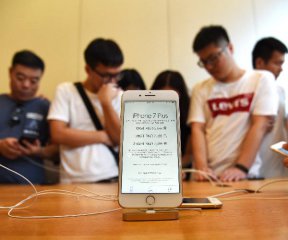
BEIJING, May 29 (Xinhua) -- Many tech companies around the world have expressed support for the Chinese telecom firm Huawei, saying they will continue their cooperation with the company as analysts said the U.S. ban on Huawei has created a disruptive ripple effect.
The U.S. government said recently that it will "prohibit transactions posing an unacceptable risk" to the country by declaring a national emergency over what it claims are technological threats, and announced restrictions on the sale and transfer of U.S. technologies to Huawei.
In response, Ren Zhengfei, the company's founder and president, said last week that Huawei never wants to "walk alone" in global markets and has seen widespread global support.
NOT ABOUT SECURITY
Despite intensive inspections by some governments for years, no "backdoor" has been found in Huawei's products so far, German tech analyst Paul Dalg was quoted by local media as saying.
The future 5G security standard should be discussed on a content level with neutral cybersecurity experts, not be misused as a leverage for an international trade conflict, Dalg said.
Mahmoud Raya, editor-in-chief of Lebanese "China in Arab Eyes" news website, said the United States "has been taking a lot of illegal and unfriendly measures against Chinese companies operating in different fields, which shows that America's policy falls within a strategy adopted by the U.S. administration to suppress Chinese companies."
British business magnate Alan Michael Sugar, chairman of Amshold Group, said "there is no security issue with China" and hailed Huawei as "great engineers" in his tweet on April 28.
"It's not about security," he said. "It's about business.
Huawei competitors in USA (are) trying to block them from the market." Cambridge University professor Alan Barrell told Xinhua in a recent interview that in telecommunications, the real argument is not about whether Huawei technology will employ "bugs" dangerous to Western interests, which has been denied by Huawei repeatedly, but about the
"Shenzhen company's superiority in 5G and other technologies, and the fear that the United States has now become No. 2 or even 3 in this key area of technology development."
BUSINESS AS USUAL
Disregarding the U.S. restrictions and warning, many of Huawei's business partners said they will continue working with Huawei, which provides products and services to nearly one-third of the world's population in over 170 countries and regions.
Reflecting on the fact that Huawei is one of the most prominent companies in the Serbian market, Tatjana Matic, state secretary of the Ministry of Trade, Tourism and Telecommunications, said in a statement last week to Serbia's national broadcaster RTS that there is no potential consequence for Serbia's consumers of Huawei products, nor for the future of the Serbian government's joint projects with Huawei.
Germany's logistics company Deutsche Post DHL Group said in a recent statement to Xinhua that the company is "committed to providing logistics services to all of our customers, including Huawei."
German chipmaker and semiconductor manufacturer Infineon said it will continue to ship "the great majority of products" to Huawei, according to the company's statement to Xinhua.
Products of Huawei, mostly smartphones, are also being displayed and sold as usual in many countries. In Vietnam, Huawei products are available in retail shops and on online channels, reported by ICTNews, a specialized page of Vietnam's major online newspaper VietNamNet. "Their prices listed on websites have undergone no changes."
OBSTACLE TO PROGRESS
Huawei is now deeply embedded in the global supply chain. Washington's ban on the Chinese company would hold back technological advance and earnings of global tech sectors, analysts said.
The U.S. government has called on countries around the world to exclude Huawei from 5G development, but only a few countries are in line, said Hidetoshi Tashiro, chief economist at Sigma Capital Ltd.
This is because, if Huawei is excluded from 5G, the construction of 5G networks will not only be delayed, its reliability will also be reduced and costs will be increased, the Japanese expert said.
"These developments increase the likelihood telecom providers take a wait-and-see approach on the dispute before making 5G purchase for their next generation networks," said the Swiss leading investment bank UBS.
Just as putting sand, rather than oil, into the wheels of a machine degrades the functioning of a machine, the long-term threat from such bad faith approaches is the degraded functioning of the globalized, cross-border technology ecosystem, said Sourabh Gupta, a senior fellow at the Washington-based Institute for China-America Studies, in his recent email interview with Xinhua.
"The long-term impact of artificial barriers placed on two-way technology flows, like the one placed on Huawei, will be to throw sand into the functioning of the global technology ecosystem," he said.




















Latest comments